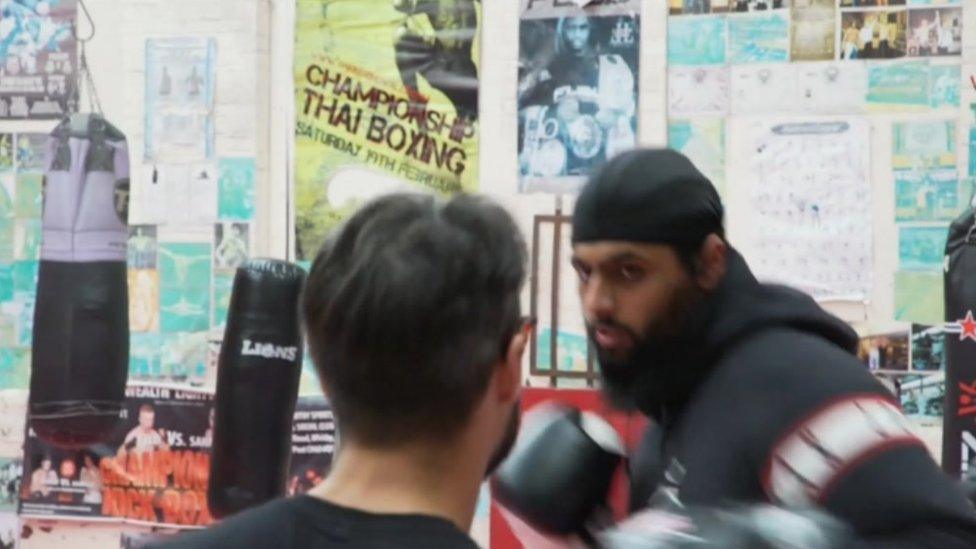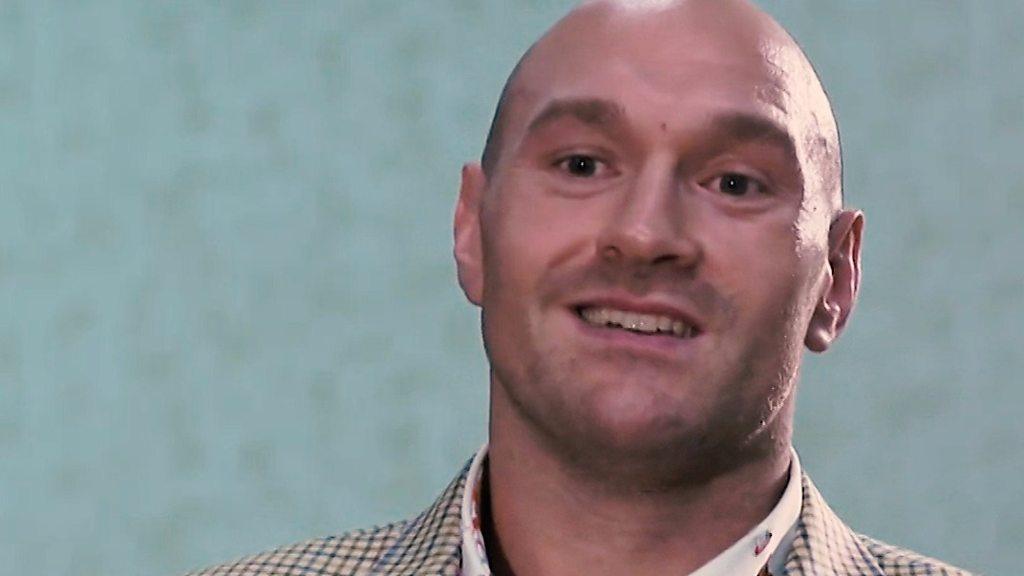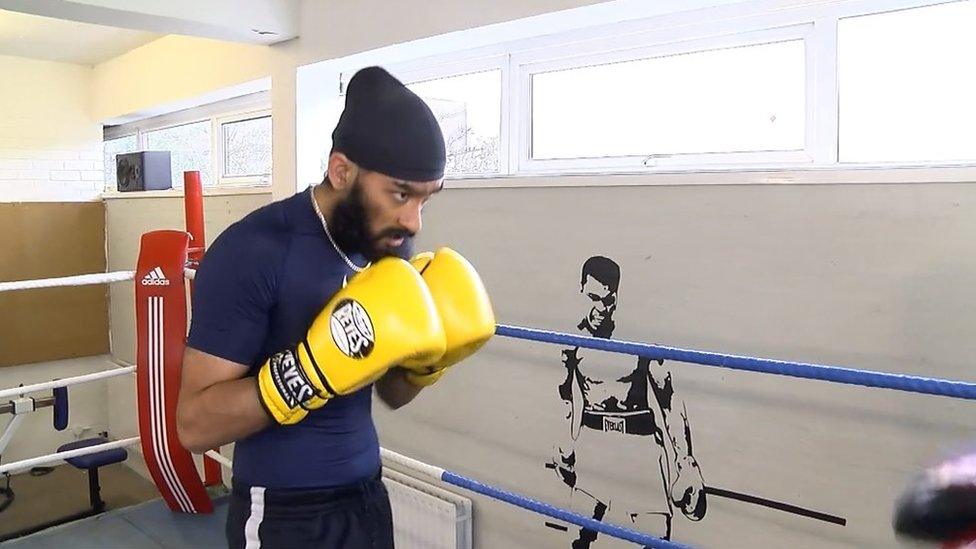Boxing beard ban is discrimination, says Sikh amateur fighter
- Published
Aaron Singh wants Wales to follow England and reverse the ban
A ruling that amateur fighters in Wales must be clean shaven is discriminatory, a Sikh boxer has said.
Aaron Singh, 20, said the rule used by the Welsh Amateur Boxing Association (WABA) prevents him from competing because of his faith.
The English amateur body, England Boxing, reversed the ban following a campaign from Sikh and Muslim boxers.
The WABA said whether or not the rule was discriminatory would be decided this month by its members and board.
It added it would also consider if the "sporting integrity" of amateur boxing would be affected by abandoning the rule.
Mr Singh, who is from the East Midlands but is studying philosophy and economics at Cardiff University, said: "For me to compete, they're asking me to shave all of my beard off, which is against my religion.
"I spoke to the WABA on the phone and they told me that it was a health issue.
"To have someone tell me that I'm not allowed to participate in something like a sporting event because I've got a beard - I personally see that as being wrong.
"Personally I do feel that the rule is discriminatory. I can do it an hour away but as soon as I come here it's not allowed."

Aaron Singh trains at a gym in Plasnewydd, Cardiff
The Sikh principle of Kesh prevents the removal of any hair on the body, because it is considered sacred and a gift from God.
Amerpreet Singh, a prominent figure within the Sikh community in Cardiff, agrees with Mr Singh and said: "To me, it's 100% discriminatory. By saying you cannot fight in Wales as an amateur boxer because you have a beard is heartbreaking.
"Sikhs fought in the first and the second world war. When we fought in those wars, they didn't fight with a trimmed beard. They fought with their turbans and their full beards.
"It hurts that they're trying to tell us that we can't do amateur boxing in Wales because we have a beard, but yet we were fine to fight for freedom in those wars."
Amateur boxing is governed internationally by the International Boxing Association (AIBA), under which boxers continue to be prevented from competing with facial hair.
But AIBA was stripped of its Olympic status, external in May, meaning the International Olympic Committee will set its own regulations for boxing in next year's Tokyo Olympics.
Prof Carwyn Jones is a lecturer in sports ethics at Cardiff Metropolitan University. He said he understood the WABA's reasoning for the rule, but does not feel it justifies the current ban.

Aaron Singh refuses to lose his beard
"It seems there's some evidence that having facial hair may impede the referee and the doctor's ability to recognise and treat injuries," he said.
"The question from the equality point of view is whether the potential harm or injury are significant enough to warrant a rule that is fairly discriminatory against certain religions.
"If this was Formula One, for example, and somebody said for religious purposes I can't wear a safety belt, you could say well that's a significant enough risk to say actually you have to.
"With this rule, boxing is a dangerous sport. Boxers know the risks and they take precautions."
Mr Singh fears the rule has already hampered his prospects of a career in the sport.
He said: "I've missed out on a lot of experiences. We've had home shows at Cardiff University that I've not been able to participate in, which to me is quite upsetting.
"I would like to get this rule changed not just for myself, but for all my Sikh brothers, my Muslim brothers, and anyone out there who has a beard."
- Attribution
- Published21 March 2018

- Attribution
- Published30 November 2018

- Published27 March 2018
